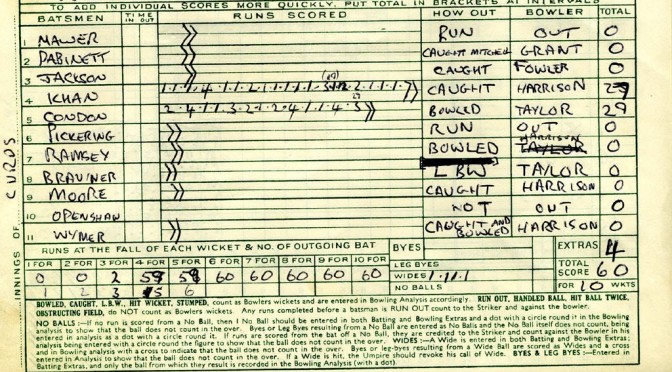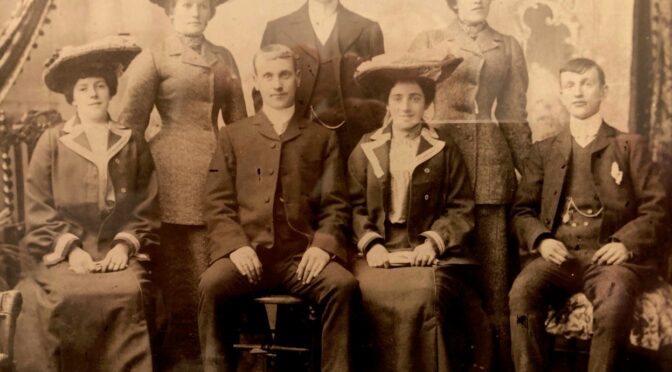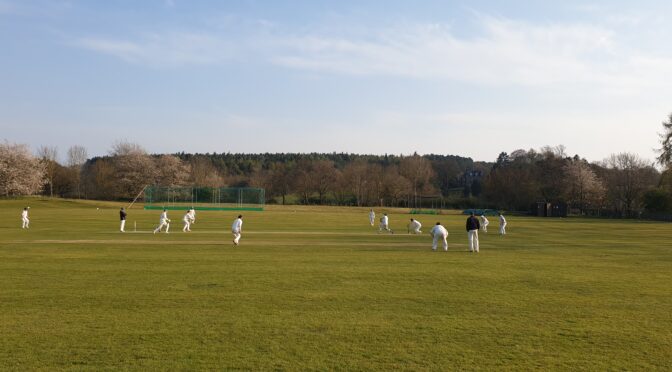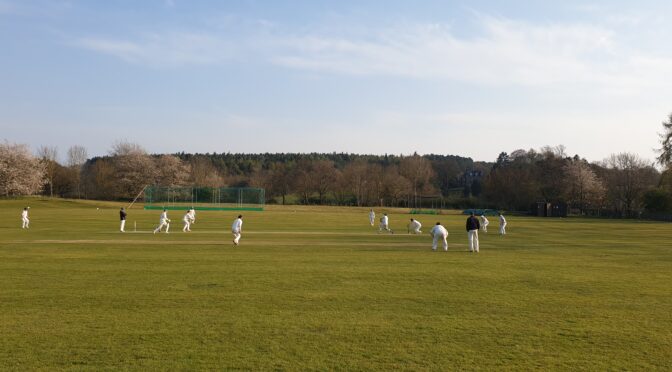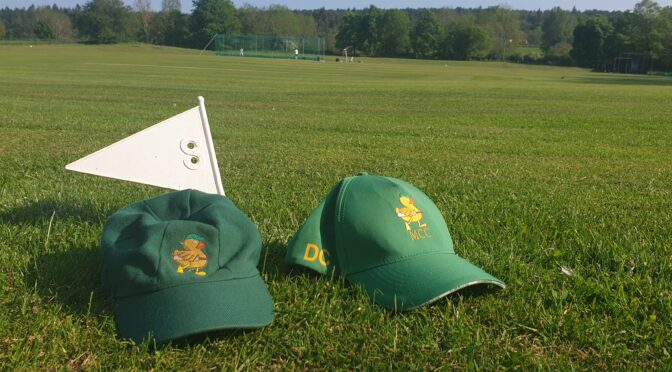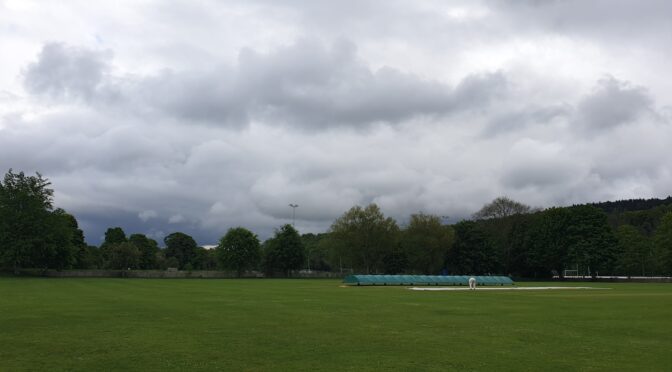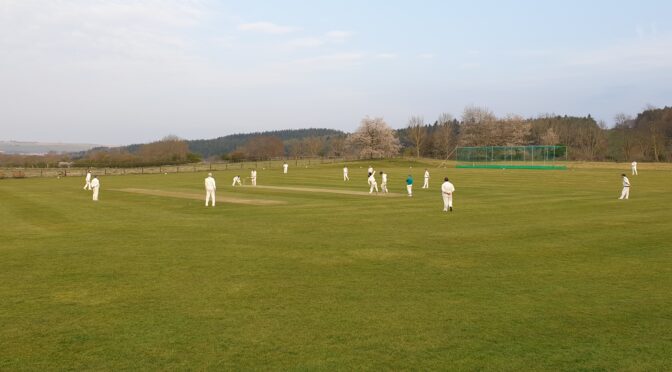Dearest cousin Eglantine,
Forgive me: it has been some two years since my last monograph [see Mallards v Wolsingham CC @ Beamish, 21 July 2019]. Distracted as I am by my continued difficulties in synthesising Byron’s use of Spenserian stanzas with the third Canto of Scott’s Marmion, my lack of correspondence is perhaps matched only by my failure to keep abreast of events in Her Majesty’s Empire. The London Times reports that the overland route from China via the North West Frontier has been closed for a while, and that the steam-packet journey from Peking to London (via the Colony of Aden) must now be followed by a period of ‘quarantine’. This might explain why my ‘contacts’ from Scotswood Road claim that ‘supplies’ from China have ‘gone dry’. How peculiar: has something happened whilst I have been ensconced in the library of my country house and estate at Broomhaugh Towers, Riding Mill? [Tiresome historical allegories, drug references and allusions to the pandemic aside, mention must be made of ‘Stig’ at this point: get well soon, mate].
You might recall that my last letter recounted the glorious tableau that was a fixture between Mallards CC and a Wolsingham CC XI at Beamish Village. Acting on advice from my good friend and fellow ‘Black Drop’ enthusiast, Thomas De Quincey, I sought to counter my recent restlessness by an evening perambulation around the grounds of Broomhaugh.
Oh Eglantine! How joyous I am to attest that it was my miraculous fortune to see that the ‘gentlemen’ Mallards had emerged from what I am told is known as ‘isolation’ to do sporting battle with the ‘players’ of Riding Mill CC! What bliss it was in that evening to be alive, but to be reacquainted with the Mallards (and with Professor Stone’s ‘flashing blade’, more of which later) was very heaven!
After summoning a man to find and erect a deck chair for my use (Stone, 2019), I settled in to observe the spectacle. Cognisant as I am of the ease with which Mallards are distracted, not least by the beer, fish ‘n’ chips and boiled sweets that were on offer at Beamish Village, I decided to watch from a discrete distance; the bushes at the Jon Rob benches end providing suitable cover. Nevertheless, I was close enough to hear the respective tactical discussions, the contrasts being rather stark: those representing Riding Mill CC referred to batting orders and their recent performances in competitive cricket, whilst Mallard’s strategy was seemingly typified by Dr Cleaver, Dr Green and Dr Steel, their discourse failing to extend beyond the extent to which Mr Browne’s shoulder injury might affect his onanistic abilities. Hosts Riding Mill CC also engaged in a somewhat vigorous physical warm up. I am thankful that Mallards, not least given Mr Browne’s alleged (self) interest, did not.
Apologies, my dear Eglantine and to those more ‘serious’ cricketers for whom this account may be of import. One’s composure being rather shaken by such prurience, memories of the opening passages of play are a tad hazy. Well, that and having to ration my use of ‘nerve dampener’ due to what the local villagers refer to as ‘these strange times’. One does hope that my beloved Percy Shelley is continuing to ‘chase the dragon’ with greater regularity. Despite being provided, post-match, with a lithograph of the scorebook by that most gentlemanly of Mallards, Mr Latif (L), my eyesight seems to offer less than perfect acuity and this report is, perforce, a touch abridged.
I do remember that Mallards batted first, the experienced Dr Steel and captain Mr Cox displaying superb courage in the face of some impressive opening bowling by Smith and Frazer. Pressure mounted to the extent that the steady initial scoring became increasingly punctuated by ‘dot-balls’ and some near misses. Dr Steel was the first to fall for nine, including two sublime boundaries, caught off Frazer by the ever-cheerful ‘keeper (and sometime Mallard) Kent (about whom I will expound in greater detail later). I must remember to invite Dr Steel for tea, tiffin and a symposium on coitus interruptus at the Newcastle Lit & Phil.
The magnificent Mr Malik was next in, only to be bowled (Frazer) for an uncharacteristic one. Master Holland (E) joined the fray with the score at 12-2. Energy, skill and determination abounded in what was an all too brief innings. Distracted, perhaps, by unsolicited advice on his A-Level choices from Dr Green, he left after adding five, caught and bowled by Mallinson.
Debutant Mr Maltman [welcome, Glenn], recruited by that great master of contemporary prose Mr Wood, joined the redoubtable Mr Cox with the score at 24-3. Maplesden (M) had by now joined the attack from the Job Rob benches end. His accurate bowling soon accounted for Mr Cox, perturbed, no doubt, by New Zealand’s continued status as an ‘across the ditch’ outpost of the Colony of New South Wales. Mallards’ talismanic Antipodean fell for an assiduous 10 (including two fours). ‘The heart will break, but the talented cricketer will always live on’ as Byron might have put it.
Inspired by his new-found love of Austro-Bavarian poetry (see Mallards v Benwell & Walbottle CC @ Riding Mill, 24 May 2021), the ever-honourable Mr Latif (L) joined Mr Maltman with the score at something or other for four from seven overs. A sumptuous boundary followed that, allied with some spirited defence from Mr Maltman, helped to keep the score moving. Delivering the valedictory lecture at the ‘Rilke and Hegel: Two absolute smackheads’ conference that I hosted at Broomhaugh Towers, Mr Latif (L) developed an intriguing synthesis of Rilkean lyricism and Prussian state militarism. Unfortunately, the owl of Minerva took flight before the darkness had gathered and Mr Latif (L) was bowled by Maplesden (M) after scoring six.
The muzzle-velocity of Sir Hiram Stevens-Maxim new-fangled gun is reported to be 744 metres per second. The four struck by new batsman Mr Latif (K), another debutant [welcome, Khalid], reached the boundary at the picnic tables end at a similar speed. Bowler Maplesden (S) avenged this blow, bowling Mr Latif (K) for four. 50-odd for 6 became a few more for 7 from 15 overs when Mr Maltman succumbed after scoring a resolute two, given out [correctly] by umpire Master Holland (E), resting before his appearance for the Northumberland County XI. Suitably mounted at the gatehouse at Broomhaugh Towers, one of these marvellous new weapons should be just the thing to keep the riff-raff from Stocksfield away from the soon to be restored stash of laudanum tincture.
Mr Holland (S) and Dr Green sought to improve the run-rate. The unfortunate Mr Holland (S) may well have done so had he not been run out for three following a dubious call [and an excellent throw by Gilroy] by Dr Green. Further dubiety was evident when Dr Green’s referred to wicketkeeper Kent as what I think was ‘a right cad’, the otherwise innocent and bemused Kent being guilty only of missing a stumping chance. One’s position in the bushes at the Job Rob benches end precludes being entirely sure of what was said, albeit the third word was monosyllabic and began with a hard ‘c’ sound. Umpire Dr Steel, consulting his 1867 copy of Tom Smiths, confirmed Dr Green’s egregious error: one may refer to an opponent as a ‘bounder’, a ‘blackguard’ or, indeed, a ‘crinkum-crankum’, but only if they have never played for Mallards.
With the score at 60 something for eight after 17 overs, Mr van Doorn restored some much-needed decorum. Solid defence and a splendid four followed before he succumbed (bowled) to Marks after scoring a useful six. Umpire Dr Steel remarked that Marks must be the only bowler to have ever been appointed ‘by democracy’, the ‘players’ of Riding Mill CC being confident (rightly, so it was to be proved) that they could rest their usual attack. I do hope that this ‘democracy’ thing doesn’t catch on. The recent Parliamentary Reform Act of 1867 increased the electorate to almost 2.5 million. Whatever next, my dear Eglantine? Universal suffrage? Votes for the inhabitants of Corbridge? One does hope not.
As Scott tells us, ‘Oh what a tangled web we weave, when we dangle the bat outside of off-stump’. So entered Neasden’s finest, Dr Cleaver, striding to the middle for the final over. He proceeded to accumulate a quickfire five not out, including an elegant four through midwicket, the ‘crack’ sound off the bat reminding me of the Martini-Henry rifle that dear Uncle Horatius brought back from the Sudan. Mallards closed at 73-9 off their allotted 20 overs, Dr Green blaspheming his way to seven not out and the ever-dependable Mr Extras top-scoring with 15.
Word had by now reached me, a note being sent by runner from Dunston Staithes, that Professor Ian ‘the Flashing Blade’ Stone had returned from his latest visit to the Dominion of Canada. You might recollect, dearest cousin, that my last encounter with Mallards featured an entertaining discussion with the dashing Professor, his impressive knowledge of late-Victorian Romantic literature being equalled only by the majesty of the ‘blade’ that he flashed towards me [note from Latif Solicitors: allegedly] after a lunch interval that featured several Pimms and a trip to The Sun Inn. Such refreshment and, no doubt, too many years amongst the Quebecois seemed to have loosened both his morals and the gusset ties of his cricketing trousers. My position in the bushes at the Job Robb benches end, being Professor Stone’s preferred habitat [note from Latif Solicitors: allegedly], alongside the need to maintain my reputation in Victorian high society meant that I thought it best to retire to Broomhaugh Towers for a spot of supper and a few hits on the opium pipe.
Leaving quietly via the shipping container boundary, I had time to observe the diligent Dr Cleaver opening the bowling attack from the picnic benches end and the pacy Master Holland (E) charging in from the Jon Robb benches end. I also overheard Mr Van Doorn’s suggestion that the Mallards total, much like McGonagall’s The Tay Bridge Disaster, was ‘challenging’. Riding Mill CC openers Kent and Hall seemed to demur, both striking the occasional boundary amongst regular singles. Still, the admirable efforts of Dr Cleaver and Master Holland (E) produced chances and both batsmen remained watchful.
Mr Cox brought himself on from the picnic tables end and the openers found his left-arm pace almost as disagreeable as the dodgy bag of brown that I once bought whilst visiting the British Legation Quarter in Beijing. The run-rate slowed and Mallards began to sense that maybe, just maybe, the ‘players’ as yet polished performance might be starting to fray. The illustrious [stand-in – Ed.] skipper was also unfortunate not to take a wicket, finishing with superb figures of 2-1-4-0.
Hopes were raised by Mr Latif (L), his spinning left-arm darts creating opportunities from the Jon Robb benches end and culminating in the wicket of Kent for a well-crafted 19, Mr Latif (L) taking an astonishing caught and bowled chance. Hopes were lowered by the potty-mouthed Dr Green, his non-spinning right-arm lobs creating fewer chances from the picnic tables end, notwithstanding a mis-hit by Hall that almost trickled onto the stumps and Mr Maltman just failing to hold a difficult catch off new batsman Gilroy at deep midwicket.
Hall fell to new bowler Mr Holland (S), brought on to deliver his accurate right-arm off-breaks from the Jon Rob benches end. The inspired Mr Latif (L) continued his fine form, taking another difficult catch at mid-on. Sadly, the task proved too great for even Mr Holland (S), Gilroy and Marks leading Riding Mill CC to their target with some eight overs to spare. My dear acquaintance Samuel Taylor Coleridge could not have put it better: ‘In Riding Mill did Kubla Khan a stately pleasure dome decree; where runs ran measureless to the boundary and into the sunless sea.’
So, beloved Eglantine, back to my literary pursuits at Broomhaugh Towers. My yearning for a resumption of ‘trade’ with China, via the chaps from Scotswood Road, is now surpassed only by thoughts of Professor Stone. Will his tumescent ‘blade’ grace Broomhaugh once more? Did he manage to score any decent skag [note from Latif Solicitors: conjecture] whilst bringing Pax Britannica to Montreal? Did Thomas De Quincey really eat opium? Who knows, my darling cousin. Reply soon, dearest.
Yours bemusedly,
Florence Leglance (Ms)

